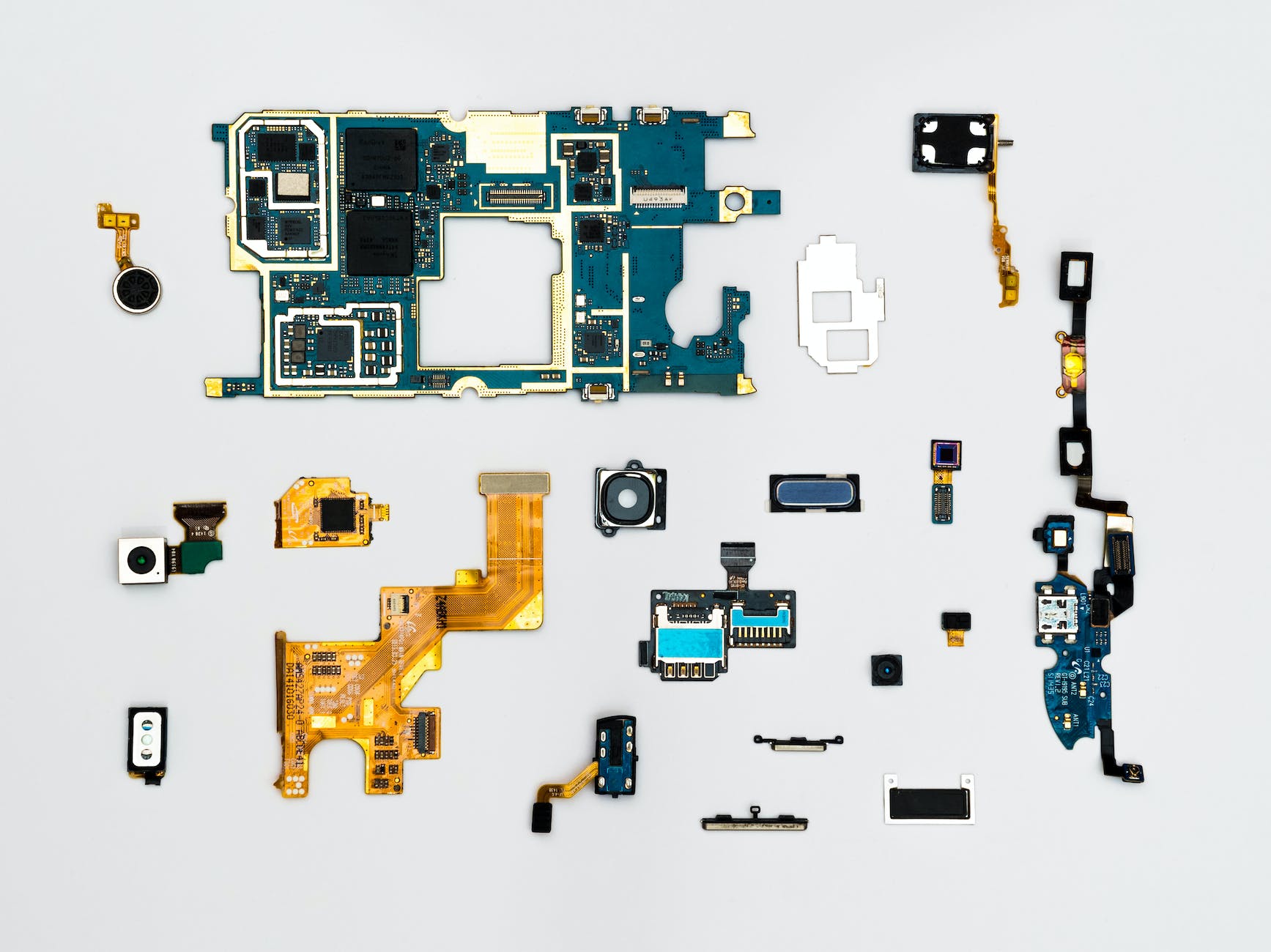Introduction
Starting a small business is an exciting endeavor, but it also comes with a great deal of responsibility. One important aspect that small business owners should consider is insurance coverage. Insurance provides protection and peace of mind in the event of unexpected incidents that could disrupt or even derail your business. In this article, we will explore the key points small business owners need to know about insurance and how it can safeguard their enterprises.
Table of Contents
- Understanding the Importance of Insurance
- Types of Insurance Coverage for Small Businesses
- 2.1 General Liability Insurance
- 2.2 Property Insurance
- 2.3 Professional Liability Insurance
- 2.4 Workers’ Compensation Insurance
- 2.5 Business Interruption Insurance
- 2.6 Cyber Liability Insurance
- 2.7 Product Liability Insurance
- 2.8 Commercial Auto Insurance
- 2.9 Directors and Officers Insurance
- 2.10 Employment Practices Liability Insurance
- Assessing Your Insurance Needs
- 3.1 Evaluating Potential Risks
- 3.2 Determining Required Coverage
- 3.3 Considering Industry-Specific Requirements
- 3.4 Calculating the Cost of Insurance
- Finding the Right Insurance Provider
- 4.1 Researching Insurance Companies
- 4.2 Obtaining Multiple Quotes
- 4.3 Reviewing Policy Terms and Conditions
- 4.4 Seeking Professional Advice
- Understanding Policy Terms and Conditions
- 5.1 Coverage Limits and Deductibles
- 5.2 Exclusions and Limitations
- 5.3 Claim Process and Timelines
- 5.4 Renewal and Cancellation Policies
- Maintaining Your Insurance Coverage
- 6.1 Regularly Reviewing Your Coverage
- 6.2 Updating Your Policy as Needed
- 6.3 Communicating Changes to Your Insurer
- 6.4 Staying Informed About Industry Changes
- Conclusion
- FAQs (Frequently Asked Questions)
1. Understanding the Importance of Insurance
Insurance plays a vital role in protecting small businesses from various risks and liabilities. It acts as a safety net, providing financial support when unexpected events occur. Whether it’s property damage, liability claims, or employee injuries, having the right insurance coverage can help your business recover and continue operating smoothly.
2. Types of Insurance Coverage for Small Businesses
2.1 General Liability Insurance
General liability insurance protects businesses from third-party claims of property damage, bodily injury, or advertising mistakes. It covers legal costs and any awarded settlements, ensuring that your business doesn’t suffer financially due to lawsuits.
2.2 Property Insurance
Property insurance covers the physical assets of your business, including buildings, equipment, inventory, and furniture. It provides compensation in case of damage or loss caused by fire, theft, vandalism, or natural disasters.
2.3 Professional Liability Insurance
Professional liability insurance, also known as errors and omissions insurance, is essential for service-based businesses. It protects against claims of negligence, errors, or omissions in providing professional services, offering financial coverage for legal fees and damages.
2.4 Workers’ Compensation Insurance
Workers’ compensation insurance is mandatory in most states and provides coverage for employee injuries or illnesses that occur in the workplace. It pays for medical expenses, lost wages, and rehabilitation costs, protecting both the employee and the employer.
2.5 Business Interruption Insurance
Business interruption insurance is designed to help small businesses recover financially after an unexpected event, such as a fire or natural disaster, that disrupts their operations. It covers lost income and ongoing expenses during the recovery period.
2.6 Cyber Liability Insurance
In today’s digital age, cyber liability insurance is crucial for businesses that handle sensitive customer data. It protects against data breaches, cyberattacks, and other cyber threats, covering the costs of forensic investigations, legal fees, and customer notification.
2.7 Product Liability Insurance
Product liability insurance is essential for businesses that manufacture or sell physical products. It covers legal expenses and compensation claims if a product causes injury or property damage to a consumer.
2.8 Commercial Auto Insurance
Commercial auto insurance provides coverage for vehicles used in business operations. It protects against accidents, property damage, and liability claims involving company-owned vehicles or vehicles used for business purposes.
2.9 Directors and Officers Insurance
Directors and officers insurance safeguards the personal assets of company directors and officers. It provides coverage for legal expenses and damages in case they are sued for alleged wrongful acts or mismanagement of the company.
2.10 Employment Practices Liability Insurance
Employment practices liability insurance protects businesses against claims related to employment practices, such as wrongful termination, discrimination, or harassment. It covers legal costs and damages awarded to employees or job applicants.
3. Assessing Your Insurance Needs
Before purchasing insurance coverage for your small business, it’s crucial to assess your specific needs and risks. Consider the following factors:
3.1 Evaluating Potential Risks
Identify the potential risks your business may face. Evaluate factors such as location, industry, size, and type of operations to determine the specific risks that need coverage.
3.2 Determining Required Coverage
Based on the risks identified, determine the types and amounts of insurance coverage required to adequately protect your business. Consult with insurance professionals to ensure you have the right level of coverage.
3.3 Considering Industry-Specific Requirements
Certain industries have specific insurance requirements or regulations. Research and understand any industry-specific coverage that may be mandatory for your business.
3.4 Calculating the Cost of Insurance
Consider your budget and calculate the cost of insurance premiums. Compare quotes from different insurance providers to find the best coverage options within your budget.
4. Finding the Right Insurance Provider
Choosing the right insurance provider is essential for obtaining reliable coverage. Follow these steps to find the most suitable provider for your small business:
4.1 Researching Insurance Companies
Research and evaluate insurance companies that specialize in providing coverage for small businesses. Consider factors such as their reputation, financial stability, and customer reviews.
4.2 Obtaining Multiple Quotes
Request quotes from multiple insurance providers to compare coverage options and premium costs. Ensure that the quotes include all the required coverage for your business.
4.3 Reviewing Policy Terms and Conditions
Thoroughly review the terms and conditions of each insurance policy. Pay attention to coverage limits, deductibles, exclusions, and any additional requirements or conditions.
4.4 Seeking Professional Advice
If you’re unsure about any aspect of the insurance policies, seek advice from an insurance professional or broker who can provide guidance and help you make an informed decision.
5. Understanding Policy Terms and Conditions
To make the most of your insurance coverage, it’s important to understand the terms and conditions outlined in your policies. Consider the following key points:
5.1 Coverage Limits and Deductibles
Understand the coverage limits and deductibles for each type of insurance. Determine the maximum amount the insurer will pay and the amount you will be responsible for in the event of a claim.
5.2 Exclusions and Limitations
Familiarize yourself with the exclusions and limitations of your insurance policies. Be aware of any specific circumstances or events that may not be covered by your insurance.
5.3 Claim Process and Timelines
Know the steps involved in filing a claim and the timelines associated with the process. Promptly report any incidents to your insurance provider and follow their instructions for filing a claim.
5.4 Renewal and Cancellation Policies
Be aware of the renewal and cancellation policies of your insurance policies. Mark important dates on your calendar to ensure timely renewals and avoid any gaps in coverage.
6. Maintaining Your Insurance Coverage
Insurance is not a one-time purchase. To ensure continuous protection, follow these practices:
6.1 Regularly Reviewing Your Coverage
Periodically review your insurance coverage to ensure it aligns with your current business needs. Update or modify your policies as necessary to accommodate changes in your operations or risks.
6.2 Updating Your Policy as Needed
Inform your insurance provider about any changes to your business, such as new locations, additional products or services, or changes in staff. Update your policy accordingly to maintain accurate coverage.
6.3 Communicating Changes to Your Insurer
Promptly communicate any changes or incidents that may impact your insurance coverage to your insurer. Failure to disclose relevant information could result in denied claims.
6.4 Staying Informed About Industry Changes
Stay informed about changes in your industry that may affect your insurance needs. Be proactive in understanding emerging risks and explore additional coverage options if necessary.
7. Conclusion
Insurance is an essential component of running a small business. It provides protection against unforeseen events, helping you mitigate risks and safeguard your business’s financial stability. By understanding the different types of insurance coverage, assessing your needs, and maintaining appropriate policies, you can ensure that your business is well-protected.
FAQs (Frequently Asked Questions)
- What is the importance of insurance for small business owners?
- Insurance is important for small business owners as it provides financial protection against various risks and liabilities. It ensures business continuity and safeguards the owner’s investment.
- What types of insurance coverage do small businesses need?
- Small businesses may require different types of insurance coverage, including general liability insurance, property insurance, workers’ compensation insurance, and professional liability insurance.
- How do I assess my insurance needs as a small business owner?
- Assessing insurance needs involves evaluating potential risks, determining required coverage based on those risks, considering industry-specific requirements, and calculating the cost of insurance.
- How do I find the right insurance provider for my small business?
- To find the right insurance provider, research and evaluate insurance companies, obtain multiple quotes, review policy terms and conditions, and seek professional advice when needed.
- What should I consider when reviewing insurance policy terms and conditions?
- When reviewing policy terms and conditions, consider coverage limits and deductibles, exclusions and limitations, claim process and timelines, and renewal and cancellation policies.










